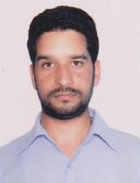Journal of Sociology and Social Work, 1(1), pp. 01-08.
Abstract
The greatest challenge that the Government of India has been facing since independence is the proper provision of social justice to the scheduled tribes, by ameliorating their socioeconomic conditions. Scheduled tribes, scheduled castes and denotified tribes constitute the weakest section of India’s population, from the social, economic and educational angles. They constitute the matrix of India’s poverty. Development of tribal population has been a major concern of the nation builders, central and state governments, policy makers, nongovernment organizations, social scientists, social reformers etc. we have constitutional provisions for social, economic, educational, political, administrative, health and sanitational achievements of the tribal people of our nation. Since our independence various policies, strategies, approaches and models to tribal development have been conceived. From the very beginning of the 1st five years plan to the present 12th five years plan, a number of programmes of tribal development have been formulated and implement. Billions and billions of rupees have been spent in the name of tribal development. But most of the programmes have either failed or could not yield result up to the expectation. In this paper an attempt has been made to access and evaluate the impact of various developmental programmes on the socio-economic transformation of the transhumant tribals of Jammu & Kashmir. The study was conducted among the Gujjars and Bakarwals of district Anantnag. For this study data from both primary as well as secondary sources was used. The study reveals that inspite of the implementation of various policies and programmes for their development by the state and central governments, these tribals continue to live in pathetic conditions.
Full Text: PDF
Sofi, Jan Umer. (2013). Paradox of Tribal Development: A Case of Gujars and Bakarwals of Jammu & Kashmir (India). Journal of Sociology and Social Work, 1(1), pp. 01-08.
Chaudhary, S. N. 2009. Tribal Development since Independence,Concept Publishing House.New Delhi
Das, S.T. 1993. ‘’Tribal development and socio cultural Matrix’’ Knashka Publication, Delhi.
Lidhoo, M.L. 1992. ‘’Kashmir Tribes,’’ Minakshi Publication, Srinagar.
Mahapatra,L.K .1997. ‘’Tribal Development in India,’’ Vikas Publishing House, New Delh.
Mathur.1976. Anthropology in the Development Process, Vikas Publishing Company. New Delhi.
Meehta. C. P.2006. ‘’Development of Indian Tribes,’’ Discovery publishing House, New Delhi.
Mohanty, P.K. 2002. ‘’Development of Primitive Tribal Groups in India’’ Kalpaz Publication, Delhi
Rao, A.andCasimir, M. J.1982. Mobile pastoralists of J&K -- a preliminary report on tribal people, Journal of Nomadic People. 10:40-50
Sharma, A. N.2002. ‘’Tribal Welfare and Development (Emerging Role of Anthropological Explorations),’’Sarup and Sons, Ansari Road, New Delhi.
Singh, M.R.2006. ‘’Tribal Development in 21ist Century’’ Mithal Publication, New Delhi.
Sofi, Umer .2011. A Study of Socio-Economic Conditions and Development Among Gujjars& Bakarwals of Jammu & Kashmir- with special reference to district Anantnag ; M.phil dissertation (un published) submitted to Pondicherry Central University.
Tripathy ,S.N (ed) 2000. ‘’Glimpses on Tribal Development,’’ Discovery Publishing House, New Delhi.
Xaxa,V. 2008. State , Society & Tribes: Issues in Post-coonial india. Pearson Longman. New Delhi.
Zutshi, Bupinder 2001. Gujjars and Bakerwals of Rajouri District, in K. Warikoo (ed.),Gujjars of Jammu and a Kashmir, IGRS, Bhopal.

Umer Jan Sofi is a Ph.D Research Fellow at Department of Sociology, Indira Gandhi National open University, New Delhi. After completing M.A in sociology from University of Kashmir, Srinagar in 2009, he went on to pursue Mphil. from Pondicherry University, Puducherry. Which he completed in 2011. He has qualified national eligibility test (NET) conducted by University Grants Commission in Dec. 2012 for teaching at college and university level. He has also qualified J&K state eligibility test (SET) in Sep. 2013 for teaching at higher education level. His research interests include- Tribal studies, social change, social exclusion of marginalized groups, gender studies etc. He has attended many national and international conferences and participated in various workshops and seminars. He also some national and international research publications to his credit
Browse Journals
Journal Policies
Information
Useful Links
- Call for Papers
- Submit Your Paper
- Publish in Your Native Language
- Subscribe the Journal
- Frequently Asked Questions
- Contact the Executive Editor
- Recommend this Journal to Librarian
- View the Current Issue
- View the Previous Issues
- Recommend this Journal to Friends
- Recommend a Special Issue
- Comment on the Journal
- Publish the Conference Proceedings
Latest Activities
Resources
Visiting Status
| 1190 | |
| |
1142 |
| |
19076 |
| |
18134 |
| 1633755 | |
| 15 |
 The Brooklyn Research and Publishing Institute
The Brooklyn Research and Publishing Institute